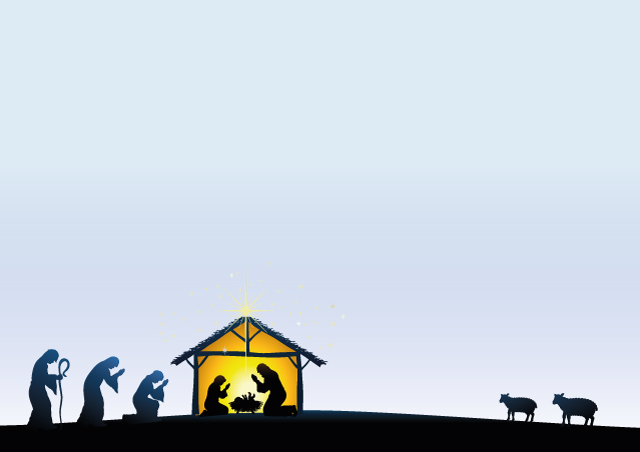Sermon given by Revd Maggie Hindley, St. Andrew’s Ealing 22 Jan 2023
1 Corinthians 1: 10-18
Matthew 4: 12-23
When I was in Jerusalem, staying with Christian Peacemaker Teams in a
hostel in the Old City, I met a solo fellow-guest whose name I can’t
remember. He was a Christian too; he said he was there because Jesus
had called him to sweep the streets of Jerusalem. Which is what he did,
every day, in an orange tee-shirt with ‘Jesus’ printed on the back. He
must have had loads of those tee-shirts, because one day there were two
dozen of them pegged out to dry on a makeshift washing line on the
rooftop. My group were quietly cynical about him. The Holy Land is full of
people who feel they are called by God to do one thing or another, some
plainly useful, some rather eccentric. And of course, as you know, I go
there to answer a call I believe to be from God to stand alongside the
people of Palestine.
How does God call us? How do we know God’s call for what it is? It isn’t
always as clear as that ten-word call to Simon and Andrew by the Sea of
Galilee. Follow me, and I will make you fish for pepople. Eight words in
Greek, Goodness knows how few in the economical Aramaic language
Jesus probably spoke.
What is it that you are called to? All of us, at some point, to be baptised
or to own our baptismal promises as adults. Some, obviously, to be Elders
and maybe to a specific role within that. Some of us to particular
professions, or lifestyle choices, or retirement activities. All of you, as a
church, to the mission you are carrying out day-to-day. And maybe to
others sorts of things, things you are ready to take a stand about………
How do we know? How do we distinguish a genuine call from our own ego-
driven fancies? Something that the assessors who make decisions about
people who put themselves forward for ministry have to be very clear-headed about.
And there are ways to test a call. We’re wise to run our idea past several
others, especially those we know to be wise themselves, and to listen
carefully to how they react. We’re wise to take time before making any
big decisions. We’re wise to soak the call we think we’ve heard in prayer.
We’re wise to assume we are ego-driven sinners who are prone to delusion
and to ask ourselves what good will come of this new direction. When in
doubt, I’ve sometimes offered the decision I’m thinking about to God
three times, at intervals, and gone ahead if I seem to get three clear
yesses. We are wise, in our church life, to try to assess the developing
mood of church meeting, as Quakers do, rather than simply putting
arguments for and against and voting.
None of this would have worked for Peter and Andrew and James and
John when Jesus walked by. But I think it does for us!
The call of Jesus has a particular flavour to it. If you look at what
happened to Peter and Andrew and James and John, it didn’t turn out
easy. They needed the clarity of that initial call to keep them following
Jesus.
Our call will have something of the same flavour. Theirs was a call to
change, and it was pretty dramatic; they left their work and livelihood
and families, maybe even their dependents. What changes have you been
called to over the course of your life? Are you called to change now? It
might be to the change of a daily habit, or to begin or end a relationship.
Or to leaving behind a long-held prejudice. Or to engage with an issue
that seems important. Or even, occasionally, to go to Jerusalem, or the
West Bank, or somewhere else far away.
The disciples were called to adventure, to fishing for loads and loads and
loads of new followers. There was even glamour in the early days of their
following Jesus. But, right from the beginning, they found themselves
constantly challenged and corrected by Jesus. They had a lot of learning
to do! So, with us, as often as we ae called to do something a bit heroic,
we find out that we are not really heroes. There is only one hero in our
story, and it’s the one who has called us. We will be misunderstood; we
will fail, we will be awkward and lazy and even cowardly, and through
those humiliating experiences our understanding of our call will grow.
Painfully, we will deepen and broaden in soul.
Jesus doesn’t tell the disciples by the Sea of Galilee – he teaches them
bit by bit as the months go by – but the call to follow leads in one
inevitable direction – to the cross. Jesus’ revolutionary teaching and life
is too much for the powerful. The disciples will see Jesus abandoned –
indeed, they themselves will abandon him – and condemned and tortured
and dying. No glamour there. And they will themselves, most of them,
come eventually to die violent deaths because of their witness to the
Good News. That’s part of the package of our call. We are not to be
surprised that we have to deal with some of the worst things life can
throw at us nor that we, too, will complete our calling only when we die.
And of course that’s not the end. As Jesus lives and works and rules still
at the centre of the universe, so the disciples live for always. So do we,
and continue beyond our death to inspire and influence and add to the
total happiness of the universe. It’s a winding route that leads there,
though.
Paul’s letter to the Corinthians was written to a quarrelsome church.
People felt they were called, not to the gospel pure and simple, but to
follow particular leaders within the church – and those leaders did
things differently. Don’t do factions, says Paul. Don’t do winners and
losers. For us the simplicity of the gospel, the need for unity and the
foolishness of the cross. If your sense of call leads you into conflict with
your fellow believers, question it. We may need to hold firm on an issue,
but we are never called to contempt for others. Sit light to your opinions,
Paul might have said. Hold them provisionally. They may change in the
light of the greater call.
There is always a provisionality to our call. We need to keep checking
back with God, in prayer, asking what it is that God calls us to now, today,
this moment, which is different from yesterday. It’s good if we don’t get
too attached to particular roles, whether we enjoy them or find them
burdensome. God may have a new task for us to do. God may be calling
others to take up a role that we could helpfully discard.
Back to today’s picture book! Jesus’ Day Off. It’s both a warning and a permission in
relation to our call. Jesus needed to pause in his habit of giving out to
others, and to receive at the hands of God. Sometimes that’s our call,
too. To simply sit in the presence of God, to play in the lovely world we’re
set in, and be re-charged. It’s hard, sometimes, to let go. We get very
involved in what we do. But that is why God created the Sabbath for us;
so that we can let God be God, let God be in charge, and enjoy being
God’s beloved. Hard work will come again!
We may be called to sweep the streets of Jerusalem, or to stand at
checkoints, or to call ‘fire!’ about global heating, or to nourish our fellow
believers, or to speak a truth others seem to be missing, or to prayer, or
to encourage younger people. Or many other things. Our calling is not our
own – it’s God’s, and it’s a shining gift that changes as it changes us. Let’s
treasure it.






